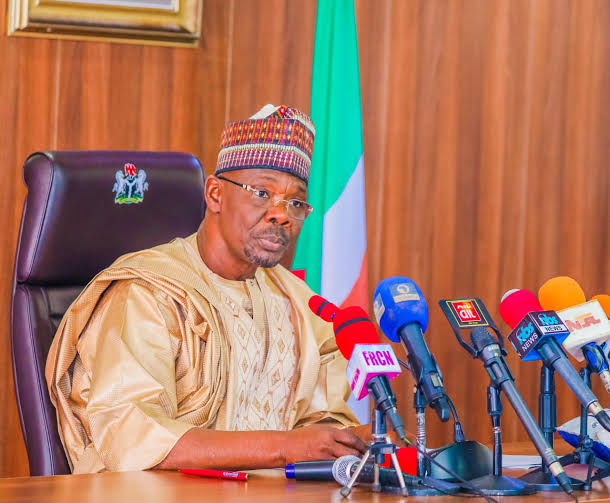Nasarawa State Governor Abdullahi Sule has raised concerns over the significant amount of money spent by the previous administration of President Muhammadu Buhari in an attempt to revive Nigeria’s refineries.
Governor Sule revealed that the government had expended more than the $19 billion used in constructing the Dangote Refinery, which is currently Africa’s largest oil refinery.
Nigeria possesses refineries in Kaduna, Port Harcourt, and Warri; however, none of them are operational, prompting the establishment of the privately-owned Dangote Refinery.
Many industry experts view this as a step towards the privatization of the oil sector.
The construction plans for the Dangote Refinery were initiated in 2017, and the project was commissioned in May 2023, just days before the end of President Buhari’s administration.
Governor Sule expressed his dissatisfaction with the amount of funds allocated to revitalize Nigeria’s refineries.
During an interview with Channels Television on Thursday, June 8, he stated, “Look at how much the President Buhari administration spent on fixing the refineries.
In the eight years, he spent more money than the $19 billion that Dangote spent in building a refinery. That is one and a half times the size of our three refineries combined.”
Governor Sule attributed the non-functionality of Nigeria’s refineries to the burden of subsidy payments.
He highlighted the challenges faced by the government in maintaining the refineries despite the substantial financial investments made over the years.
He further emphasized that during President Buhari’s tenure, crude oil prices dropped by less than 30 dollars, resulting in the removal of subsidies.
“Our three refineries in Nigeria today have a total capacity of 450,000 barrels per day, whereas Dangote’s refinery has a capacity of 650,000 barrels per day.
He spent $19 billion on building it. Meanwhile, we spent, not on constructing a new refinery, but on maintaining these existing refineries, more than $19 billion over eight years, yet they have not been adequately maintained,” Governor Sule explained.
The governor’s criticism sheds light on the challenges faced by the Nigerian government in revitalizing the country’s refineries and the subsequent impact on the nation’s oil sector.
As Nigeria continues to rely heavily on imported petroleum products, the need for functional refineries becomes increasingly urgent.
The Dangote Refinery’s completion marks a significant milestone in Nigeria’s refining capacity, potentially reducing the country’s dependence on imported fuel.
Governor Sule’s comments highlight the necessity for effective utilization of funds, proper maintenance, and a comprehensive approach to address the longstanding issues surrounding Nigeria’s refineries.
With the changing dynamics of the oil industry, there is a growing consensus on the need for strategic reforms to ensure the sustainable development and efficiency of Nigeria’s oil sector.






